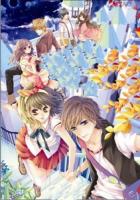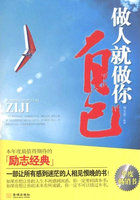When the door closed on Rupert the master pulled down the blind, and, trimming his lamp, tried to compose himself by reading.
Outside, the "Great Day for Indian Spring" was slowly evaporating in pale mists from the river, and the celebration itself spasmodically taking flight here and there in Roman candles and rockets. An occasional outbreak from revellers in the bar-room below, a stumbling straggler along the planked sidewalk before the hotel, only seemed to intensify the rustic stillness. For the future of Indian Spring was still so remote that Nature insensibly re-invested its boundaries on the slightest relaxation of civic influence, and Mr. Ford lifted his head from the glowing columns of the "Star" to listen to the far-off yelp of a coyote on the opposite shore.
He was also conscious of the recurrence of that vague, pleasurable recollection, so indefinite that, when he sought to identify it with anything--even the finding of the myrtle sprays on his desk--it evaded him. He tried to work, with the same interruption. Then an uneasy sensation that he had not been sufficiently kind to Rupert in his foolish love-troubles remorsefully seized him. A half pathetic, half humorous picture of the miserable Rupert staggering under the double burden of his sleeping brother and a misplaced affection, or possibly abandoning the one or both in the nearest ditch in a reckless access of boyish frenzy and fleeing his home forever, rose before his eyes. He seized his hat with the intention of seeking him--or forgetting him in some other occupation by the way. For Mr. Ford had the sensitive conscience of many imaginative people; an unfailing monitor, it was always calling his whole moral being into play to evade it.
As he crossed the passage he came upon Mrs. Tripp hooded and elaborately attired in a white ball dress, which however did not, to his own fancy, become her as well as her ordinary costume. He was passing her with a bow, when she said, with complacent consciousness of her appearance, "Aren't you going to the ball to-night?"
He remembered then that "an opening ball" at the Court-house was a part of the celebration. "No," he said smiling; "but it is a pity that Rupert couldn't have seen you in your charming array."
"Rupert," said the lady, with a slightly coquettish laugh; "you have made him as much a woman-hater as yourself. I offered to take him in our party, and he ran away to you." She paused, and giving him a furtive critical glance said, with an easy mingling of confidence and audacity, "Why don't YOU go? Nobody'll hurt you."
"I'm not so sure of that," replied Mr. Ford gallantly. "There's the melancholy example of Rupert always before me."
Mrs. Tripp tossed her chignon and descended a step of the stairs.
"You'd better go," she continued, looking up over the balusters.
"You can look on if you can't dance."
Now Mr. Ford COULD dance, and it so chanced, rather well, too.
With this consciousness he remained standing in half indignant hesitation on the landing as she disappeared. Why shouldn't he go?
It was true, he had half tacitly acquiesced in the reserve with which he had been treated, and had never mingled socially in the gatherings of either sex at Indian Spring--but that was no reason.
He could at least dress himself, walk to the Court-house and--look on.
Any black coat and white shirt was sufficiently de rigueur for Indian Spring. Mr. Ford added the superfluous elegance of a forgotten white waistcoat. When he reached the sidewalk it was only nine o'clock, but the windows of the Court-house were already flaring like a stranded steamer on the barren bank where it had struck. On the way thither he was once or twice tempted to change his mind, and hesitated even at the very door. But the fear that his hesitation would be noticed by the few loungers before it, and the fact that some of them were already hesitating through bashfulness, determined him to enter.
The clerks' office and judges' chambers on the lower floor had been invaded by wraps, shawls, and refreshments, but the dancing was reserved for the upper floor or courtroom, still unfinished.
Flags, laurel-wreaths, and appropriate floral inscriptions hid its bare walls; but the coat of arms of the State, already placed over the judges' dais with its illimitable golden sunset, its triumphant goddess, and its implacable grizzly, seemed figuratively to typify the occasion better than the inscriptions. The room was close and crowded. The flickering candles in tin sconces against the walls, or depending in rude chandeliers of barrel-hoops from the ceiling, lit up the most astounding diversity of female costume the master had ever seen. Gowns of bygone fashions, creased and stained with packing and disuse, toilets of forgotten festivity revised with modern additions; garments in and out of season--a fur-trimmed jacket and a tulle skirt, a velvet robe under a pique sacque; fresh young faces beneath faded head-dresses, and mature and buxom charms in virgin' white. The small space cleared for the dancers was continually invaded by the lookers-on, who in files of three deep lined the room.
As the master pushed his way to the front, a young girl, who had been standing in the sides of a quadrille, suddenly darted with a nymph-like quickness among the crowd and was for an instant hidden.
Without distinguishing either face or figure, Mr. Ford recognized in the quick, impetuous action a characteristic movement of Cressy's; with an embarrassing instinct that he could not account for, he knew she had seen him, and that, for some inexplicable reason, he was the cause of her sudden disappearance.















